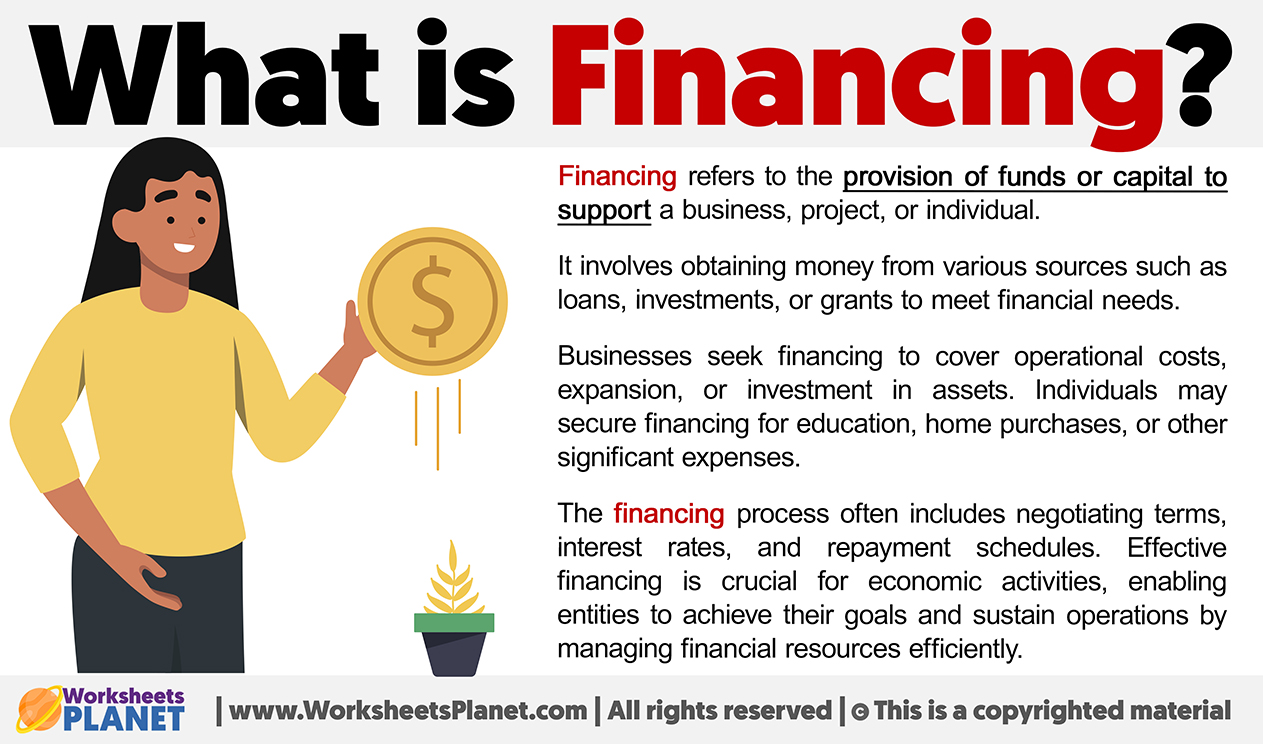Spelling Variations of “Financing”: How You Spell Financing

The word “financing,” while seemingly straightforward, is surprisingly prone to misspelling, particularly due to its length and the presence of the relatively uncommon “i” before “n” sequence. These errors can range from simple typos to more significant phonetic substitutions, impacting the clarity and professionalism of written communication. Understanding the common misspellings and their underlying reasons can help improve writing accuracy.
How you spell financing – Common misspellings often stem from phonetic approximations or attempts to simplify the spelling. The “i” before “n” can be easily overlooked or replaced with an “e,” leading to errors such as “finansing” or “fienancing.” Similarly, the double “n” might be reduced to a single “n,” resulting in “finacing.” The final “g” is also sometimes omitted, yielding “financ,” particularly in informal settings or due to hasty typing.
Common Misspellings and Phonetic Reasons
Several factors contribute to the frequent misspellings of “financing.” Below are some of the most common errors and their phonetic explanations:
- finansing: This misspelling likely arises from a phonetic substitution, where the “i” is replaced with an “a” due to the similar sound. The pronunciation of the “i” sound in “financing” can be somewhat subtle, potentially leading to this substitution.
- fienancing: This variation also involves a vowel substitution, replacing the “i” with an “e,” again reflecting a similarity in sound. This might be further influenced by words like “finance,” where the “i” is absent.
- finacing: This error stems from the omission of one of the “n”s. The double “n” can be perceived as redundant, leading to its simplification. This is a common phenomenon in many words with double consonants.
- financ: The omission of the final “ing” is likely due to haste or a misunderstanding of the word’s suffix. This often occurs in informal writing or online communication where speed is prioritized over accuracy.
Frequency of Misspellings Across Online Platforms
Determining the precise frequency of these misspellings across all online platforms is challenging due to the vast and ever-changing nature of online data. However, anecdotal evidence suggests that “finansing” and “finacing” are among the most frequent errors, particularly in user-generated content on social media and informal forums. Platforms with robust spell-checking tools (like Google Docs or professional email clients) likely show a lower incidence of these errors. The relative frequency is likely also influenced by the platform’s target audience and its overall level of formality.
Infographic Illustrating Correct Spelling
The following table provides a simple infographic to illustrate the correct spelling of “financing” and highlight common errors.
| Correct Spelling | Incorrect Spelling 1 | Incorrect Spelling 2 | Incorrect Spelling 3 |
|---|---|---|---|
| financing | finansing | fienancing | finacing |
Contextual Usage of “Financing”

The word “financing,” while seemingly straightforward, takes on nuanced meanings depending on the context in which it’s used. Understanding these variations is crucial for clear communication, whether in business proposals, personal conversations, or governmental reports. The core meaning remains centered around the provision of funds, but the source, purpose, and implications differ significantly.
The meaning of “financing” shifts depending on the sector involved. In business, it typically refers to securing capital for operations, expansion, or investments. Personal financing, conversely, focuses on managing individual finances, including mortgages, loans, and investments. Governmental financing involves the allocation and management of public funds for infrastructure projects, social programs, or debt repayment. The formality of the language used also influences the interpretation of “financing.”
Business Financing
Business financing encompasses a wide range of activities aimed at securing the capital necessary for a company’s operations and growth. This can include obtaining bank loans, issuing bonds, attracting venture capital, or seeking private equity investments. For example, “The startup secured seed financing of $5 million to develop its innovative technology.” In formal business contexts, the term is used precisely and often within detailed financial reports or legal documents. Informal settings might involve discussions about “getting the money” or “funding” the project, which are less formal synonyms.
Personal Financing
Personal financing deals with the management of an individual’s financial resources. This includes obtaining mortgages to buy a home, taking out personal loans for education or other expenses, or investing in retirement accounts. A sentence illustrating this might be: “Careful personal financing allowed her to pay off her student loans early.” The language used in personal finance discussions can range from highly formal, as seen in loan agreements, to quite informal, such as casual conversations about budgeting.
Governmental Financing
Governmental financing refers to the process by which governments secure and allocate funds for public services and infrastructure. This might involve raising taxes, issuing government bonds, or receiving grants from international organizations. An example is: “The government announced a new infrastructure financing plan to improve public transportation.” The language here tends to be formal and precise, especially in official documents and policy statements. Informal discussions might use terms like “funding” or “budgeting” as substitutes.
A Short Story Illustrating Diverse Uses of “Financing”, How you spell financing
Sarah, a budding entrepreneur, secured seed financing from angel investors to launch her eco-friendly clothing line. This business financing was crucial to her initial success. Simultaneously, she was carefully managing her personal financing, paying off student loans and saving for a down payment on a house. Meanwhile, the government announced a new green initiative, offering grants for sustainable businesses – a boost to governmental financing of eco-conscious ventures. Sarah applied, hoping for additional funding that would complement her existing financing, enabling her business to expand and create jobs, further showcasing the diverse and impactful nature of financing in various contexts.
The Importance of Correct Spelling in Financial Contexts

In the world of finance, precision and accuracy are paramount. A single misplaced comma can alter the meaning of a contract, and similarly, a misspelled word can undermine the credibility and professionalism of an entire document or communication. The seemingly minor detail of correct spelling holds significant weight, impacting not only the immediate perception of a business but also its long-term reputation and success.
Correct spelling in financial documents and communications is crucial for maintaining a professional image and building trust with clients, investors, and partners. Errors, especially in critical documents like loan agreements or financial reports, can convey a lack of attention to detail and competence, potentially damaging relationships and jeopardizing business opportunities. Conversely, meticulous attention to spelling demonstrates a commitment to accuracy and professionalism, fostering confidence and reinforcing a positive brand identity.
Consequences of Misspelling “Financing” in Formal Documents
Misspelling “financing” in a formal financial document, such as a loan application, investment proposal, or financial report, can have several detrimental consequences. It immediately signals a lack of attention to detail, potentially leading to the document being dismissed as unprofessional and unreliable. For instance, a misspelling in a loan application might lead a lender to question the applicant’s seriousness and competence, ultimately impacting their chances of securing the loan. In a more extreme case, a significant error in a financial report could even lead to legal repercussions if it misrepresents the financial health of a company. The impact is magnified when dealing with large sums of money or high-stakes transactions, where even a minor error can have significant financial implications. Such errors can damage a company’s reputation and erode investor confidence.
Correct Spelling and Professionalism in Financial Communications
Correct spelling directly contributes to the overall professionalism and credibility of financial communications. It reflects the organization’s commitment to accuracy and attention to detail, crucial aspects of building trust with stakeholders. Imagine receiving an email from a financial advisor with multiple spelling errors; this would likely raise concerns about their competence and the reliability of their advice. Conversely, impeccably written communications project an image of competence, expertise, and trustworthiness, which are essential for attracting and retaining clients in the highly competitive financial industry. Maintaining consistent, error-free communications across all platforms—from formal reports to email correspondence—is vital for projecting a professional and reliable brand image.
Impact of Misspelling “Financing” on a Business’s Image
The impact of misspelling “financing” on a business’s image can range from minor to severely damaging, depending on the context and the audience. A single error in a marketing brochure might be overlooked, but the same error in a legally binding contract could have serious legal and financial ramifications. A company known for consistently poor spelling and grammar in its communications risks being perceived as unprofessional and unreliable, potentially deterring potential investors, clients, and partners. This perception can lead to a loss of business, damage to brand reputation, and difficulty in attracting top talent. In the digital age, negative online reviews and social media comments can quickly amplify the impact of such errors, making damage control even more challenging. Conversely, meticulous attention to detail in spelling and grammar projects an image of competence and professionalism, building trust and enhancing the business’s credibility.
Best Practices for Proofreading Financial Documents
Effective proofreading is essential for preventing spelling errors in financial documents. This is not simply a matter of quickly reviewing the text; it requires a systematic and thorough approach.
- Utilize Spell Check and Grammar Tools: While not foolproof, these tools can catch many common spelling and grammatical errors. However, it is crucial to remember that they are not a replacement for human review.
- Read Aloud: Reading the document aloud forces you to slow down and focus on each word, making it easier to identify errors that might be missed when reading silently.
- Print and Review: Printing the document allows for a fresh perspective and can help identify errors that are easily overlooked on screen.
- Use a Second Set of Eyes: Having another person review the document is one of the most effective ways to catch errors. A fresh perspective can often spot mistakes that the original author missed.
- Focus on Specific Areas: Pay particular attention to sections containing numbers, technical terms, and legal language, as these are areas where errors can have the most significant impact.

Tim Redaksi